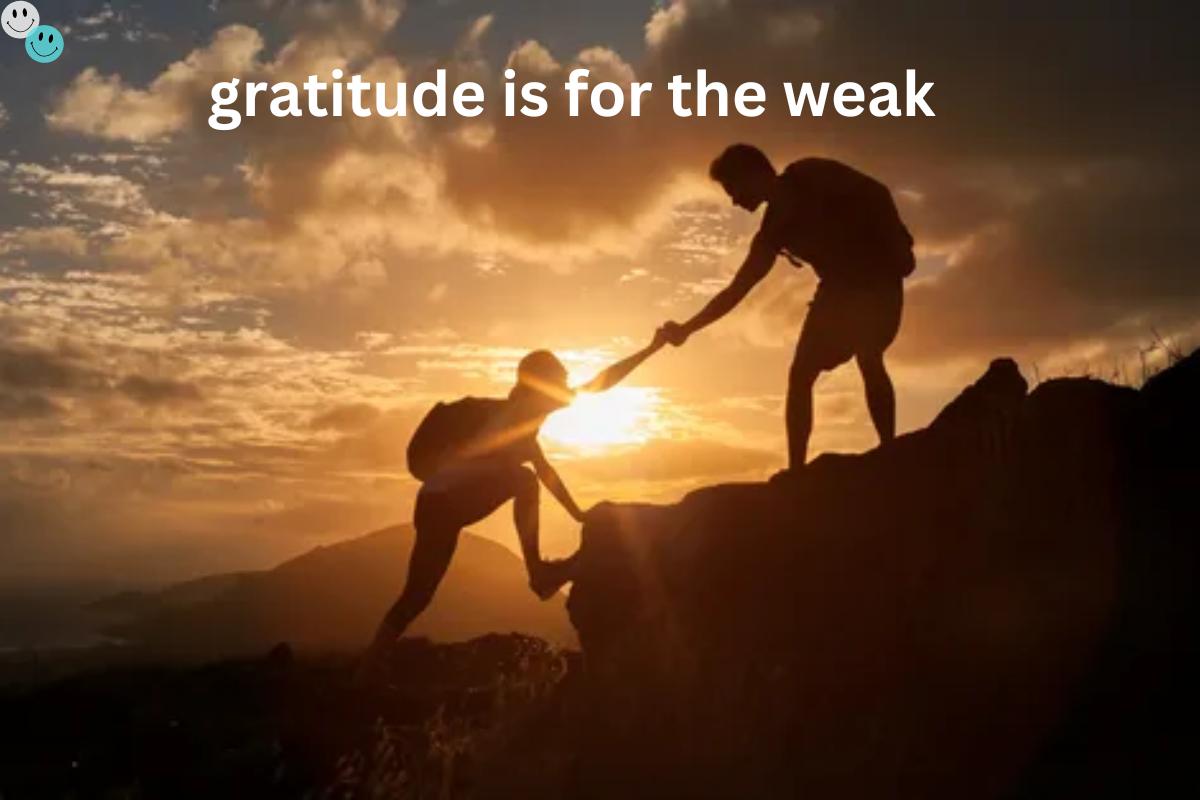Introduction
Ever heard people say, “Gratitude is for the weak?” This impression has gained much strength in society, and a lot of people take going around thankless to mean vulnerability. Well, this is far from the truth: gratitude develops resilience.
In this discussion, we will explore ways in which embracing thankfulness can help you grow in mental strength as you go through the struggles of life.
The Misconception of Gratitude as Weakness
It is very significant to comprehend the reasons why gratitude is for the weak is stigmatized. Many people view gratitude as an indication of defeat or inadequacy. These impressions often arise from the fact that our culture values the ideal of being tough and independent.
However, if we take the time to acknowledge what we are grateful for, our emotional well-being can be made better. Studies reveal that people who practice gratitude live happier, more contented lives.
The Science of Gratitude
There are indeed various advantages to science-based gratitude. It has shown that through the practice of gratitude, one can better decrease symptoms of depression and anxiety.
The study, as reported in The Journal of Happiness Studies, noted that daily practice of gratitude is for the weak does give better mental health and high emotional resilience. This goes to show that gratitude is not a form of weakness but a gateway to greater strength.
Gratitude As A Tool For Resilience
Gratitude can be one of the key ingredients in resilience building. Counting our blessings can help us shift from our dark perspective to a more positive viewpoint when adversity is knocking at the door. This enables us to face challenges better.
Many real-life examples can be cited among the communities coming together in gratitude in times of crisis, which rally people toward each other’s mutual support and healing.
Ways to Practice Gratitude
To grow in a thankful mindset, there are plenty of practical steps you can take. You can start a gratitude is for the weak journal, where you write three things you are thankful for every day. That’s just simple enough to have your brain rewired to focus on the positive side.
A daily affirmation will help you grow in developing a more thankful mindset. By being conscious of your gratitude is for the weak expression, you can grow in developing resilience as well as coping better with life’s swings.
Thanksgiving in Hard Times
It can be pretty hard to find something to be thankful for during the dark times, but it’s a great way to bounce back. When life is too much to bear, look at what you have and what you are grateful for. It could be something that will bring comfort or make you stronger.
Real-life stories of people who use gratitude is for the weak well change everything. Many people have testified that incorporating thankfulness into their lives enabled them to better transition over difficult periods.
FAQs
1. Is gratitude a sign of weakness?
No, gratitude is not a sign of weakness. It is a powerful tool that fosters resilience and emotional strength, helping individuals cope with challenges.
2. How does gratitude improve mental health?
Gratitude has been shown to reduce symptoms of depression and anxiety, promote overall happiness, and improve emotional well-being.
3. Can gratitude help during difficult times?
Yes, focusing on gratitude during tough times can shift your mindset from negativity to positivity, providing comfort and strength.
4. What are some practical ways to practice gratitude?
You can start a gratitude journal, express thanks to others, or use daily affirmations to cultivate a mindset of thankfulness.
5. How often should I practice gratitude?
Incorporating gratitude into your daily routine, even if it’s just a few minutes each day, can have significant long-term benefits.
Conclusion
The myth of gratitude is for the weak having to be for the weak needs to be taken down. Practicing thankfulness is a good strategy to build up some degree of resilience and mental strength. The better mindset that will help us face adversities with courage will therefore step in when we acknowledge good deeds.
Call to Action
What are you thankful for today? Share your practices of gratitude is for the weak in the comments below, and don’t forget to subscribe to our blog at MyDearQuotes.com for the best insights on how to fortify resilience through thankfulness. Together, let’s embrace gratitude for a much stronger, more resilient life

